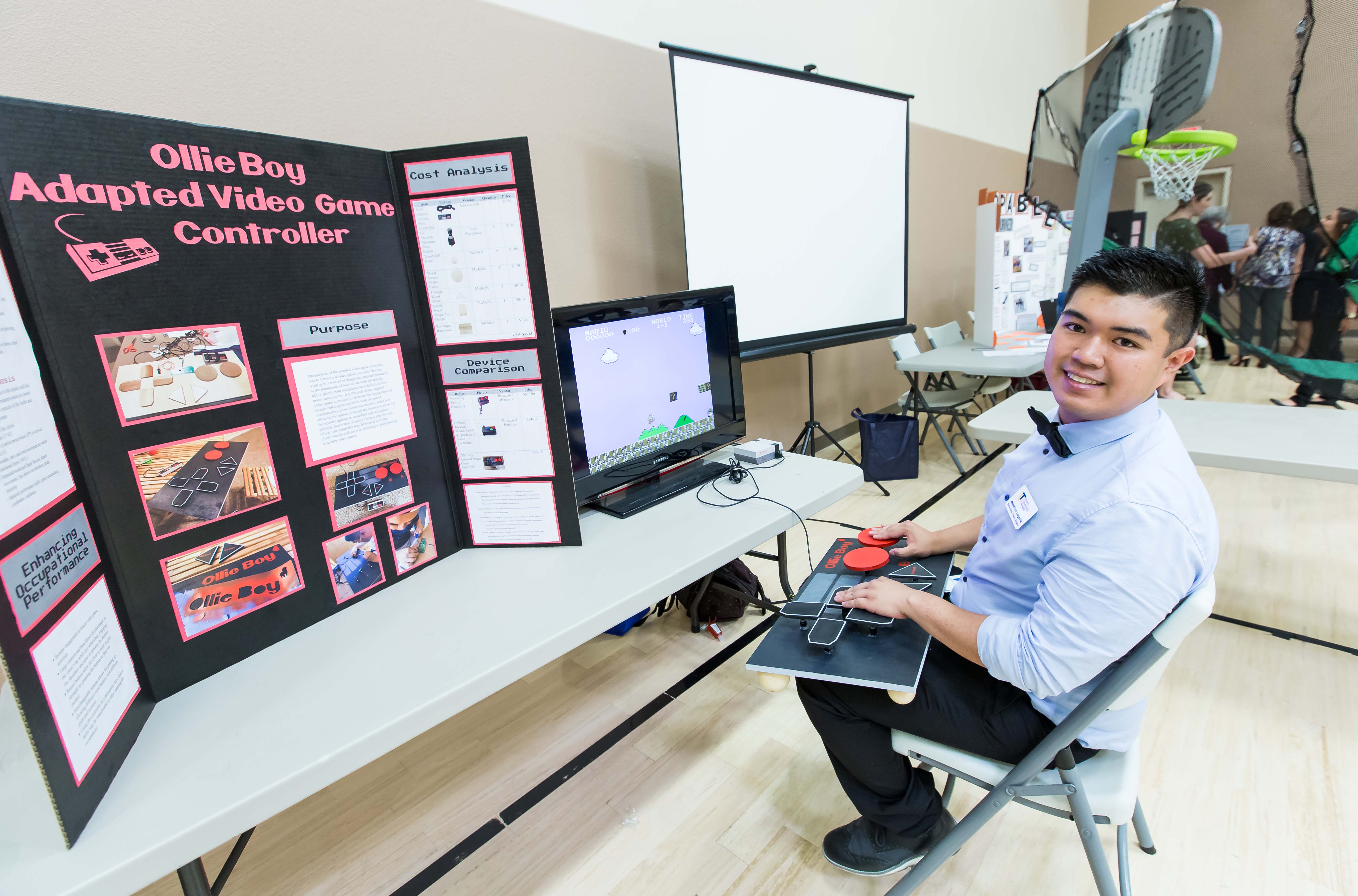
Touro University Nevada Occupational Therapy Students Showcase Creative Inventions at Assistive Technology Fair
After weeks of brainstorming, 2018 cohorts from the School of Occupational Therapy had their new inventions on display during the annual Assistive Technology Fair held inside the gymnasium on May 24.
The devices, created to assist those living with physical disabilities, were designed by the students as a class requirement. Presentations included live demonstrations as well as a poster board of information that discussed how each device works as well as its cost compared to similar models on the market.
“Because of arthritis, or maybe a stroke that’s impaired them, these inventions were created to help people re-engage in life,” said Dr. Yvonne Randall, Director of the School of Occupational Therapy. “Whether it’s fishing, fencing, tennis, swimming or other things we’re used to doing in our everyday life, there is something here for everybody.”
One of those inventions was a video game controller created by student Jonathan Legarte.
Designed to look like an oversized original Nintendo controller, Legarte hooked up wires to a circuit board that connects to the game console. The two-foot-long controller, called the “Ollie Boy Adapted Video Game Controller,” consists of two big round buttons that are operated by pushing down with an open hand instead of fingers.
“Most people with spinal cord injuries at the levels C6 and C7 have movement in their shoulders and arms, but they have no dexterity in their hands,” he explained. “This was created to help compensate the lack of grip in their hands.”
An avid gamer, Legarte turns to video games as a therapeutic way to get through hectic times. Since those with levels C6 and C7 spinal cord injuries have an incredibly difficult time playing video games, Legarte wanted to make sure they still had a way to enjoy them.
Between wiring his circuit board controller, assembling the buttons and painting the controller, Legarte spent $55 on the project. There are similar products currently on the market, though some cost more than $1,000.
“Video games are a stress reliever, and I know they’re a main leisure activity for plenty of other people too,” he said. “If someone were to have a spinal cord injury like this, they’d lose their ability to play video games. I wanted to create something affordable that could help them keep that ability.”
Caitlyn Bishop created what she called the “Handy Helper,” a device meant to help those with lower back injuries take pans in and out of the oven without bending over.
“I have family members who have lower back pain, so I wanted to create something that could help them and others who also enjoy cooking,” she said.
There are similar products already available, but Bishop’s is cheaper than the rest. Collectively, her “Handy Helper” costs just $19.
Randall praised her students for their creativity and is hopeful they’ll make a difference with the patients they assist after graduation.
“The fun part about today is seeing the creativity the students have shown in trying to develop their projects,” she said. “Even using something like a vacuum cleaner to make a ponytail helps to display their creativity. We had all sorts of fun adaptations here today.”
Learn More About Touro Nevada's OT Program


